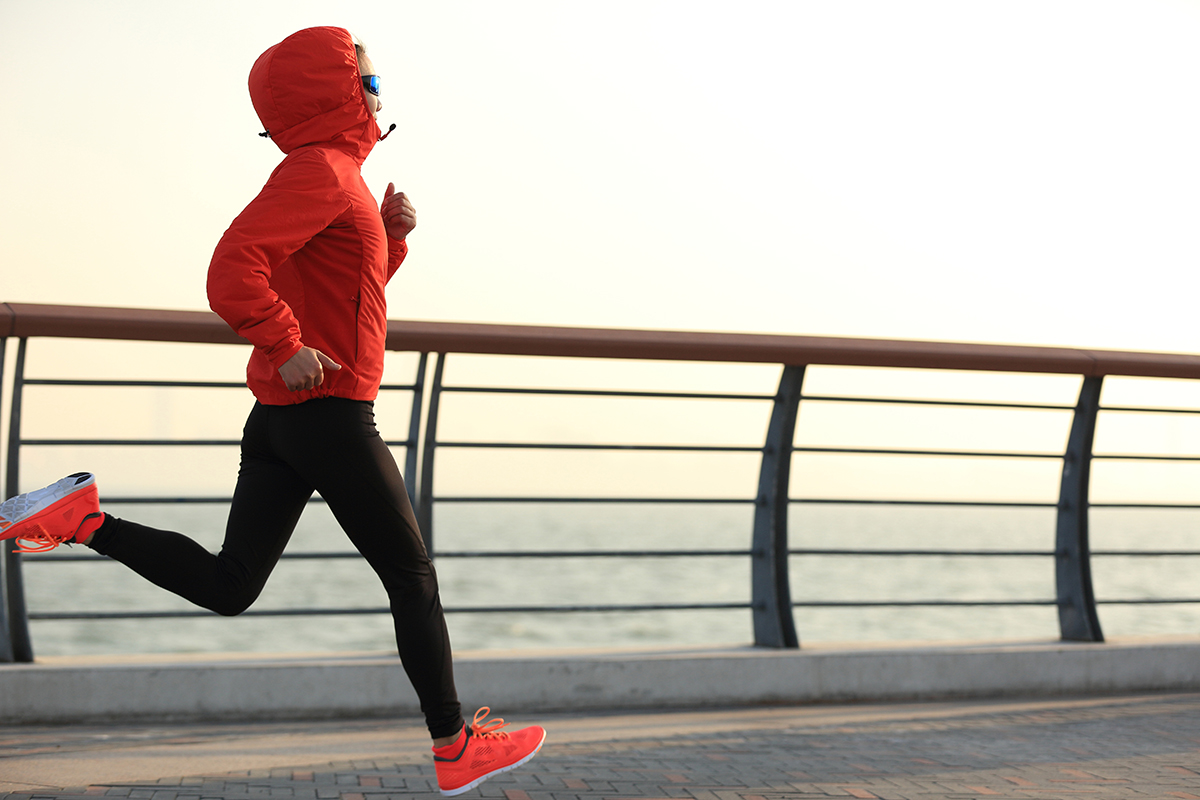Five Cold-Weather Fitness Tips to Use All Winter Long

Photo via istock.com/lzf
In New England, braving ludicrously low temperatures is a badge of honor. Us? Cold? Never.
Tough as you may be, it’s crucial to properly prepare if you’re exercising outdoors this winter—otherwise, you’re setting yourself up for injury. Here, Julie Ruane, a nurse practitioner working in Beth Israel Deaconess Medical Center’s sports medicine department, offers her advice for frigid fitness.
1. Dress in layers.
Layering, as we all know, is the key to surviving winter, and it’s especially vital when you’re exercising, Ruane says. “Since cold or tight muscles are at higher risk of injury, layering is absolutely important,” she says. Start with a thin base layer, then add something warm, and top it all off with a waterproof shell. Don’t forget a hat and gloves.
2. But don’t be afraid to shed some.
The great thing about layers is they’re adjustable. Leave the house bundled up, and take things off as necessary. “You should avoid wearing too many layers, as this could lead to increased fluid loss or sweating,” Ruane explains. “Ultimately, you can end up pulling heat from the body. It’s best to be able to shed your layers if you feel you’re getting too warm.”
3. Warm up well.
Ruane says your muscles just don’t work as well in cold temperatures, because they contract as they lose heat, which causes tightness throughout the body and decreases your range of motion. A slightly longer-than-normal warm-up, plus a post-workout cool-down, should get you good to go.
4. Keep moving.
A dead stop in the dead cold spells disaster for the muscles you worked so hard to warm up. If you need to take a break or wait for a light to change, don’t stand still. “Try to keep the blood flowing with dynamic activity such as jogging in place or jumping jacks, high knees, or butt kicks,” Ruane suggests.
5. Recover.
You may not come home from a winter run drenched in sweat, but the body still needs hydration. Drink plenty of water, and don’t forget about your post-workout meal. “Your body burns through its carbohydrate stores more quickly in the cold weather. Drinking carbs, such as a sports beverage, can help,” Ruane says. “Post-exercise replenishing with carb-protein combos, such as warm oatmeal and nuts or hot chili, is also helpful, specifically for muscle recovery.”


